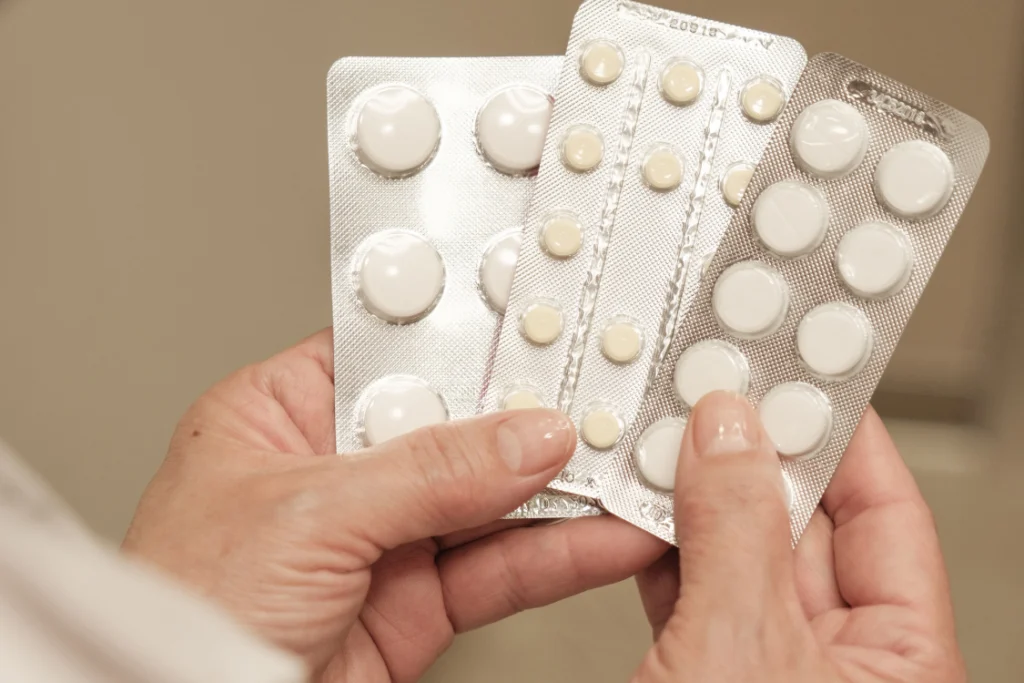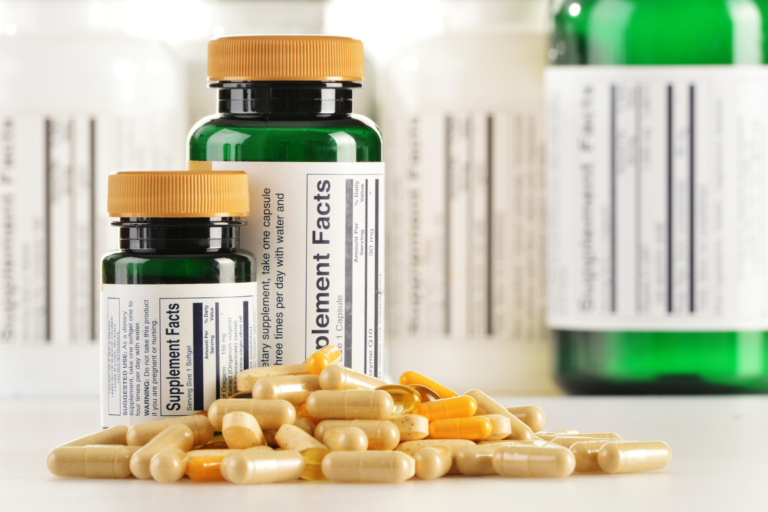Choosing a supplement manufacturer requires careful due diligence. Within the dietary supplement industry, regulatory compliance supplement transparency allows brands to confirm whether a facility follows established manufacturing and labeling requirements. When manufacturers fail to share certifications or compliance records, it becomes difficult to verify that their operations meet federal expectations.
A lack of openness can lead to federal agency scrutiny, potential recalls, or damage to brand credibility. For companies producing or labeling dietary supplements, transparency is not a guarantee of safety or effectiveness—it is a core part of accountability and regulatory responsibility.
What Is Regulatory Compliance in Supplement Manufacturing?
Regulatory compliance in supplement manufacturing refers to how companies meet federal requirements for facility operations, labeling, and documentation. Compliance helps ensure that manufacturing and quality control procedures meet consistent standards established under U.S. law.
The role of FDA and GMP standards
The U.S. Food and Drug Administration (FDA) oversees the regulation of dietary supplements under the Federal Food, Drug, and Cosmetic Act and the Dietary Supplement Health and Education Act (DSHEA). These laws define what constitutes a dietary supplement, outline labeling requirements, and assign responsibility to manufacturers for ensuring that their products meet safety and quality expectations before reaching the market. However, dietary supplements are not approved by the FDA for safety or effectiveness prior to sale, and companies are legally accountable for verifying that their products comply with existing laws and are not misbranded or adulterated (U.S. Food and Drug Administration, 2022).
Under current Good Manufacturing Practice (GMP) regulations, supplement manufacturers must document each step in production, including ingredient handling, preparation, packaging, and storage. These procedures are designed to help maintain product consistency, composition, and strength, ensuring that supplements meet established specifications for identity and purity. Still, as Bailey (2020) noted, the FDA faces challenges in monitoring product quality due to the volume of products and facilities in the marketplace, limited analytical testing methods, and variability in certain supplement categories, particularly botanical and herbal products.
In short, GMP compliance reflects a manufacturer’s adherence to federal requirements for process quality and recordkeeping, not FDA approval of the supplement itself. This distinction is critical for maintaining regulatory compliance supplement transparency, as it helps brands and consumers understand the difference between verified manufacturing practices and unproven product efficacy.
Why compliance is a shared responsibility
Compliance with federal guidelines for dietary supplements is a shared duty among manufacturers, distributors, and the brands that market these products. Under the DSHEA, companies must ensure their supplements meet labeling and safety standards before entering the market. The FDA does not approve supplements for safety or effectiveness prior to sale. Instead, firms are legally responsible for verifying that their products are not adulterated or misbranded and that any label claims are truthful and supported by reliable evidence.
Each participant in the supply chain must maintain clear documentation and robust internal control systems that align with federal requirements. Manufacturers and distributors are also required to document, investigate, and report any serious adverse events to the FDA. This collaborative framework ensures that all supplements sold in the United States meet legal and quality expectations, protecting both consumers and brands. Maintaining regulatory compliance supplement transparency strengthens accountability across the industry and builds long-term credibility (U.S. Food and Drug Administration, 2024).

Why Transparency About Compliance Is Critical
Transparency helps brands verify how manufacturers operate within federal expectations. It allows businesses to confirm compliance without assuming that all products automatically meet safety or quality standards. Transparent partners share documentation, welcome audits, and communicate openly about their procedures and federal requirements.
Protecting your brand from regulatory risk
Working with opaque manufacturers increases the likelihood of compliance-related issues. If a partner refuses to share inspection reports or hides audit outcomes, your brand may face federal agency review or financial liability. Transparent manufacturers maintain updated records and reliable internal controls, reducing the risk of preventable regulatory problems.
Building trust with your customers
Consumers expect transparency about how products are made and labeled. Dietary supplement health information must be based on accurate documentation, not implied health benefits. When brands verify their compliance status, they demonstrate accountability rather than promising specific outcomes. Open communication about regulations, label claims, and quality standards reinforces credibility within the market.
Strengthening your long-term partnerships
Strong working relationships rely on honesty and documentation. Transparent supplement manufacturers share audit findings, provide updates on regulatory changes, and include clients in management review discussions. This approach improves collaboration, reduces miscommunication, and keeps both sides aligned with federal guidelines.

Red Flags of Poor Transparency in Compliance
Early signs of poor transparency often appear in how a manufacturer communicates. Incomplete records or evasive answers may indicate weak internal control systems or poor compliance management.
Vague claims without documentation
Terms like “GMP certified” or “FDA-approved facility” can be misleading. The FDA does not certify or pre-approve supplement manufacturers. Legitimate compliance is shown through clear documentation, current certificates, and up-to-date inspection reports. Missing or outdated paperwork may indicate lapses in internal controls or documentation accuracy.
Reluctance to share audit results or certifications
A cooperative manufacturer should be able to provide audit summaries, inspection outcomes, and third-party certification details. Delays or hesitation may suggest weak systems for managing federal requirements or quality standards. Transparent manufacturers respond quickly and allow partners to verify compliance before issues escalate.
History of FDA warnings or recalls not disclosed
Manufacturers must disclose relevant FDA warning letters or recall events that pertain to their operations. Concealing this history shows poor risk management. Brands should confirm a supplier’s record through official federal databases to determine whether previous compliance issues were properly resolved.
How to Check a Manufacturer’s Transparency About Compliance
Verifying regulatory compliance supplement transparency involves direct communication and independent verification. The goal is to confirm process reliability, not product performance.
Ask directly for compliance documents
Start by requesting GMP or NSF certifications, FDA inspection records, and third-party audit data. Responsible manufacturers can provide these documents along with effective dates, recent audit outcomes, and evidence of internal controls that satisfy federal requirements.
Use public databases to verify claims
Resources from the FDA, NSF, and ISO allow you to verify whether a manufacturer’s certifications are current. Reviewing these listings confirms that a company follows applicable rules, but does not imply federal approval of its supplements.
Speak to current or past clients
Client references can reveal how a manufacturer communicates about compliance and responds to audit findings. Asking detailed questions about documentation practices and federal guidelines compliance helps identify reliable partners.

Questions to Ask to Test Transparency
- Can you share your most recent FDA inspection results?
- Do you have current GMP or NSF certifications?
- How do you address compliance issues if they arise?
- Can I review a sample audit summary?
- How often are your certifications renewed or reviewed?
Benefits of Working With Transparent Manufacturers
Transparent manufacturers help brands manage compliance efficiently. Their openness does not guarantee better products but makes it easier for partners to verify that the required procedures, reports, and systems are in place.
Reduced compliance risks for your brand
When manufacturers maintain accurate documentation and follow federal requirements, it helps prevent compliance gaps or audit failures. This process-oriented transparency supports accountability throughout each fiscal year and across federal agency reviews.
Easier collaboration and communication
Access to audit reports, procedures, and management reviews improves team communication. Brands can identify potential risks earlier and adjust budgets, programs, or timelines before regulatory deadlines approach.
Stronger customer confidence
Consumer confidence grows when brands share clear product assurances, like accurate labels, valid certifications, country or region of origin, and traceability information. Trust is also shaped by actors in the food system, including producers, retailers, government agencies, and independent third parties who validate what appears on labels. Align your transparency efforts with these cues to support credibility without implying health effects for the public (Wu et al., 2021).

Transparency Is Non-Negotiable for Brand Protection
Regulatory compliance supplement transparency is more than a procedural formality—it’s the foundation of trust, safety, and sustainable business relationships. Throughout the dietary supplement industry, every stakeholder plays a part in maintaining this transparency, from manufacturers documenting GMP processes to brands verifying certifications and internal controls.
Open communication about audits, reports, and regulatory expectations helps prevent costly errors, strengthens brand credibility, and ensures accountability under federal guidelines. By partnering only with manufacturers who prioritize transparency, your company not only minimizes regulatory risk but also builds a reputation rooted in integrity and consumer confidence.
Frequently Asked Questions
What does transparency in regulatory compliance mean?
It means supplement manufacturers share documentation and audit records to demonstrate compliance with applicable laws and manufacturing standards.
Why is transparency important in supplement manufacturing?
It allows brands to confirm compliance with federal requirements and identify reliable production partners.
How can I tell if a manufacturer is transparent about compliance?
They provide clear documentation, respond promptly to requests, and allow verification through federal agency resources.
What are the warning signs of poor compliance transparency?
Vague claims, missing audit reports, or reluctance to share FDA records can indicate weak internal control systems.
Does transparency guarantee supplement safety or effectiveness?
No. Transparency verifies compliance with manufacturing and labeling laws but does not determine safety, performance, or health outcomes.
References
- Bailey, R. L. (2020). Current regulatory guidelines and resources to support research of dietary supplements in the United States. Critical Reviews in Food Science and Nutrition, 60(2), 298–309. https://doi.org/10.1080/10408398.2018.1524364
- U.S. Food and Drug Administration. (2022, June 2). FDA 101: Dietary supplements. https://www.fda.gov/consumers/consumer-updates/fda-101-dietary-supplements
- U.S. Food and Drug Administration. (2024, February 21). Questions and answers on dietary supplements. https://www.fda.gov/food/information-consumers-using-dietary-supplements/questions-and-answers-dietary-supplements
- Wu, W., Zhang, A., van Klinken, R. D., Schrobback, P., & Muller, J. M. (2021). Consumer trust in food and the food system: A critical review. Foods, 10(10), 2490. https://doi.org/10.3390/foods10102490





